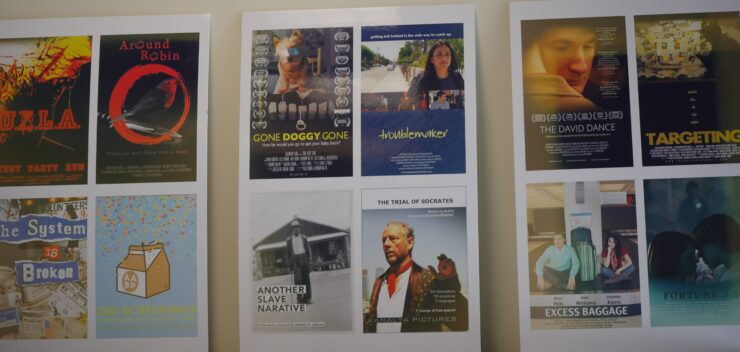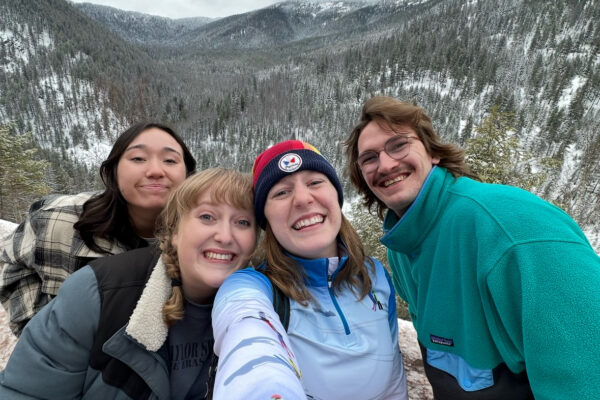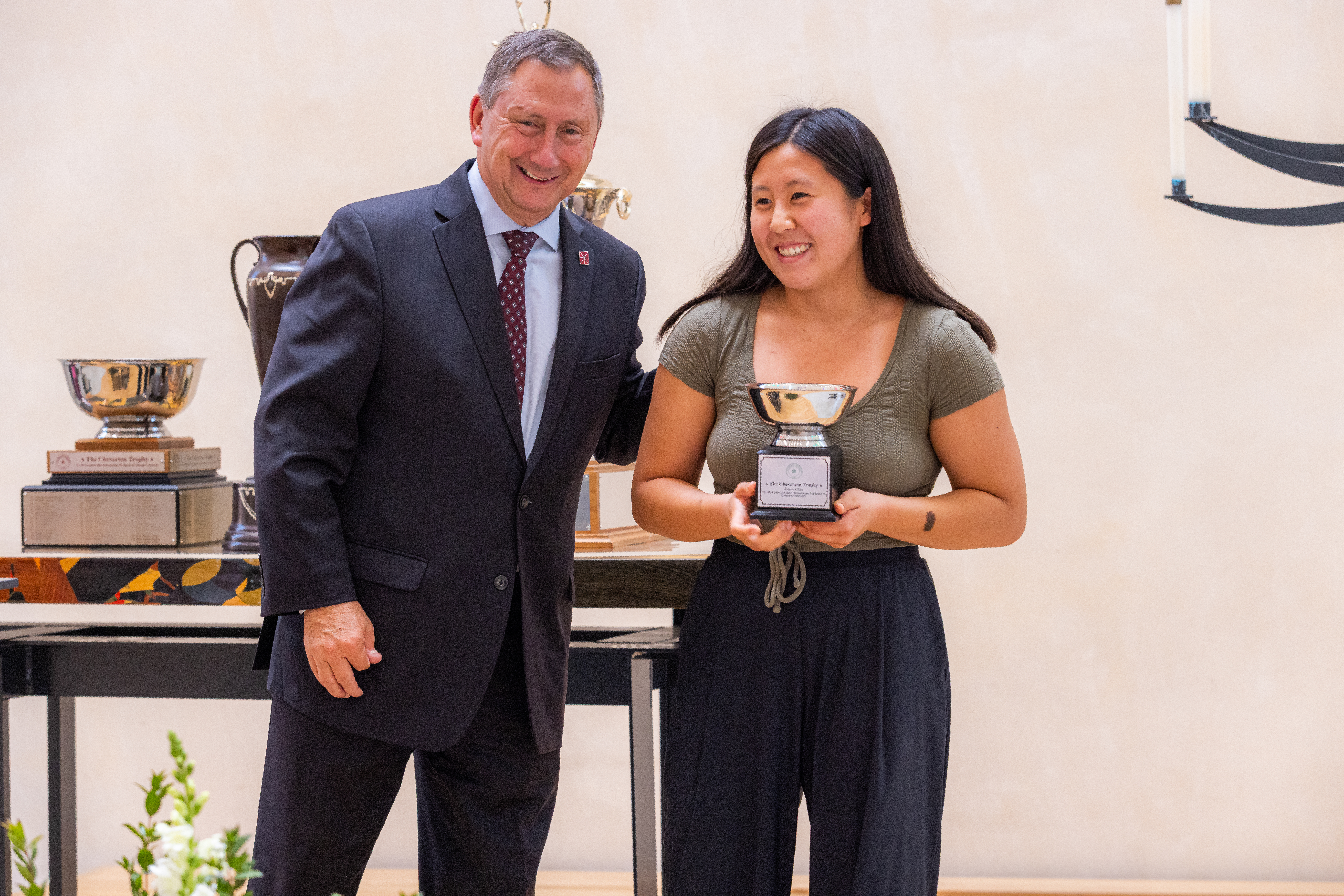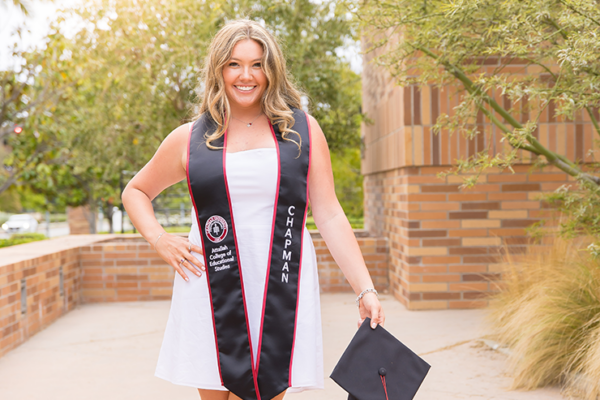Film aficionados have witnessed the work of Chapman University law students, perhaps without realizing it.
Before a film is made, submitted to festivals and distributed, filmmakers must make sure they own or have the right to use each part of that film — the script, actors’ work, location. That behind-the-scenes work is drawn up as agreements by attorneys.
Thanks to Chapman’s entertainment law clinic, students at Fowler School of Law perform this work directly with up-and-coming filmmakers.
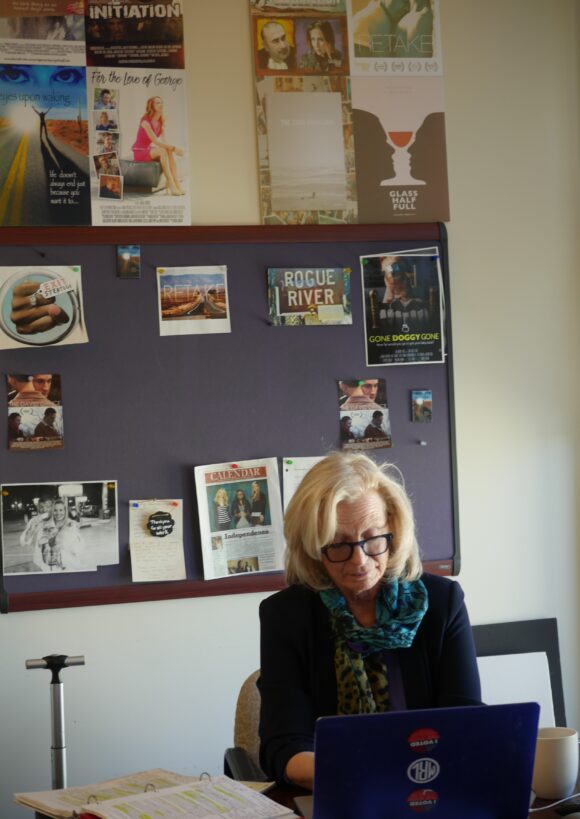
“It was really cool because we got to interview filmmakers beforehand and go through the steps, like working at a law firm,” says Andrew Cowan (JD ’24).
Cowan participated in the clinic because he wants to work in intellectual property. He and several classmates worked on contracts for feature films and a documentary.
“I think it’s a super valuable experience you can get while you’re still in school,” he says. “Working as part of a team to finish out a project gives you the opportunity to work on a lot of aspects of the legal side of production.”
Professors Mary Lee Ryan and Kim Tyler, who run the clinic, reach out to work with independent filmmakers, including alumni of Chapman’s MFA in film production. Since the clinic started 15 years ago, students have worked on 70 films, many of which have won awards.
“They get to understand the process of filmmaking and the role of the attorney in production,” Ryan says. “There are a lot of opportunities — Hollywood’s around the corner.”
By the end of the clinic, students know how to communicate with filmmaker clients, are able to juggle the process and can collaborate, according to Ryan and Tyler.
“These students really have a grasp on what practice will be like, so much so that we have a couple employers who call us when they’re looking for people,” Ryan says.
Many of the filmmakers the clinic works with are creating their first films on low budgets, according to Ryan and Tyler. When Academy Award nominee Ava DuVernay was a publicist, the clinic worked on her first film. Students in the clinic also worked on “Exit Strategy” with Kevin Hart. A recent example of a film that law students worked on is Nerris Nassiri’s indie musical “Key Change” with Chapman alumni Venk Potula and Arjun Yadav.
For these films and others, students helped filmmakers set up an LLC and create agreements, which their peers and Ryan and Tyler provided feedback on.
“It’s like we are the partners in the law firm and they are the junior associates,” Tyler says. “We’re giving them assignments, they’re handing in the work and we’re marking it up, just like we would a young associate’s.”
Students can choose to draft agreements for producers, actors and musicians. They can also work on copyright documents and have the option of taking up to six credits at Dodge College of Film and Media Arts.
“It gives them a chance to do a deep dive into what they’re interested in,” Ryan says.
Each film has its own particularities and timeline. For one film, students had to finish contracts in less than a week. Students learn to think on their feet and respond quickly to clients, which are important skills for attorneys.
“It doesn’t happen that way all the time, but they have to learn to be responsive to time constraints,” Ryan says.
One of the more memorable projects for students was the clinic’s first documentary, “Row Don’t Drift,” about a Japanese American farmer evicted from his land during World War II. Students were able to see work created by Japanese Americans incarcerated during the war, collected by Associate Professor Stephanie Takaragawa.
“We’ve represented a diverse array of filmmakers — Black, Japanese American, Filipino, Native American — I’d say almost half of our filmmakers are women,” Ryan says. “And we’ve covered topics from mental health issues, LGBTQ issues, murder mysteries, dognapping and everything in between.”
Kaelyn Timmins-Reed (JD ’24) was drawn to Fowler School of Law because of the clinic’s interdisciplinary scope. As a cinema and media arts major, she wanted to combine her creativity, love of writing and film, the business aspect of entertainment and advocating for others.
“I love filmmaking and I love independent films and the voice people can have telling unique and diverse stories,” she says.
Timmins-Reed enjoyed communicating with filmmakers on behalf of the student team.
“I really enjoyed walking creative people through that, educating them on details that they maybe don’t think about,” she says.
